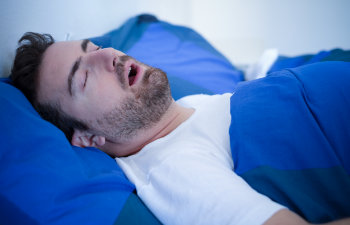
Sleep apnea is a common but serious sleep disorder where breathing repeatedly stops and starts during sleep. While many people manage their sleep apnea effectively with treatment, certain factors can exacerbate the condition, making it more difficult to get a good night’s rest. Dr. Julie Zweig, a sleep specialist and ENT in Alpharetta, shares insights on what can worsen sleep apnea and offers various treatment options to help patients manage their condition effectively.
Weight Gain
One of the most significant factors that can worsen sleep apnea is weight gain. Extra weight, especially around the neck, can increase the pressure on your airway, making it more likely to collapse during sleep. Maintaining a healthy weight through diet and exercise can help reduce the severity of sleep apnea and improve your overall health.
Alcohol and Sedatives
Consuming alcohol or taking sedatives can relax the muscles in your throat, making it easier for your airway to become blocked. Avoiding these substances, especially in the evening, can help ensure your airway remains open while you sleep.
Sleeping Position
The position in which you sleep can significantly impact your sleep apnea. Sleeping on your back can cause your tongue and soft tissues to collapse to the back of your throat, obstructing your airway. Sleeping on your side can help keep your airway open and reduce sleep apnea episodes.
Nasal Congestion
Nasal congestion, whether due to allergies, colds, or sinus issues, can make it harder to breathe through your nose at night, worsening sleep apnea symptoms. Using a humidifier, saline nasal sprays, or over-the-counter decongestants can help relieve nasal congestion and improve airflow.
Smoking
Smoking irritates the airways and can lead to inflammation and fluid retention in the upper airway, worsening sleep apnea symptoms. Quitting smoking can significantly improve your respiratory health and reduce sleep apnea severity.
Treatment Options From Dr. Julie Zweig in Alpharetta
Dr. Julie Zweig offers a range of treatment options for sleep apnea to help patients manage their condition and improve their quality of life. These include:
- CPAP Mask: A CPAP machine uses a mask to deliver a steady stream of air, keeping your airway open while you sleep.
- Oral Appliance: Custom-fitted oral appliances can reposition the jaw and tongue to keep the airway open.
- Palate Coblation: A minimally invasive procedure that reduces tissue in the soft palate to improve airflow.
Understanding the factors that can worsen sleep apnea and taking proactive steps to address them is crucial for managing this condition. Dr. Julie Zweig’s comprehensive approach to treatment ensures that each patient receives personalized care tailored to their specific needs, helping them achieve better sleep and improved overall health.
Posted on behalf of
2650 Holcomb Bridge Road, Suite 510
Alpharetta, GA 30022
Phone: (404) 255-4080
FAX: (404) 990-3542
Email: info@JulieZweigMD.com





